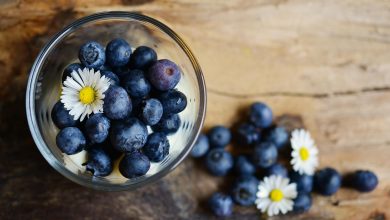What is the Flexitarian Diet? How Is It Applied?

The Flexitarian Diet is a diet program that advocates eating both vegetarian and animal foods, introduced through Dawn Jackson Blatner. That is why the name of this diet is a combination of vegetarian and flexible words. Those who follow the Flexitarians diet are not considered vegans or vegetarians, as they also eat animal foods.
This diet program does not contain strict rules or the recommended number of macros and calories. The Flexitarian diet is therefore referred to as a lifestyle.
Principles of the Flexterian Diet
The Flexterian diet has a number of principles. We can mention these Principles as follows:
- Nutrition mostly with vegetables, fruits, whole grains and legumes,
- Focus on protein from plants,
- Feeding meat and animal foods at regular intervals,
- Consumption of natural foods,
- Principles such as sweet and sugar limitation are among the principles to be considered for the Flexterian Diet.
How Is It Applied?
In this diet list, herbal foods are consumed at every meal. Adding meat group foods from time to time significantly reduces the occurrence of vitamin and mineral deficiencies. However, in order to meet the iron need, dark green leafy vegetables should be consumed, and iron absorption should be increased with foods such as lemon, strawberry and pepper rich in vitamin C. In some cases, supplements can be taken.
Supported by exercises, Flexitarian diet also extends the life span; It can also be said that it is a diet program that reduces the risk of obesity, heart disease and diabetes. Another advantage is that it is a type of diet that balances cholesterol levels significantly.
A flexitarian diet list, tailor-made, with good micro and macronutrients, is always healthy and sustainable.
Health Benefits of the Diet
Flexitarian nutrition provides many health benefits. It has significant effects on heart health, Type 2 diabetes, cancer and weight loss. These effects can be mentioned as follows.
Heart disease
Diets rich in fiber and fat are very good on heart health. Studies have revealed that vegetarians have a lower risk of heart disease than other people. This is due to the fact that vegetarian diets are based on foods rich in antioxidants and fibers that can increase blood pressure and increase good cholesterol. Flexitarian eating style is also thought to provide similar benefits to vegetarian diets, as it is generally plant-based.
Weight loss
Flexiterian diets are very good at losing belly fat. The reason this; Flexible eating restricts processed, high-calorie foods and consumption of plant foods. Some studies have shown that those who follow a herbal-based diet will experience much more weight loss than those who do not.
Diabetes
Type 2 diabetes is an important health outbreak. Maintaining a healthy diet based on plant foods can help prevent and manage this disease. Plant-based nutrition with low added sugar and high fiber food consumption contributes significantly to weight loss. A study revealed that the prevalence of diabetes is less than 1.5% in semi-vegetarians.
Cancer
Vegetables, fruits, nuts, whole grains, seeds, and legumes contain antioxidants and nutrients that can help prevent cancer. In a study of colorectal cancer patients, it was found that the risk of semi-vegetarian people getting cancer is 8% less than non-vegetarian people.
Flexitarian Diet List
The Flexitarian Diet recommends consuming less processed plant foods and plant proteins while limiting animal foods. For this, the list of foods to be consumed regularly is determined as follows:
- Proteins: Legumes, soybeans, lentils.
- Starchy vegetables: Peas, winter squash, sweet potatoes, corn.
- Non-starchy vegetables: Peppers, greens, Brussels sprouts, carrots, green beans, cauliflower.
- Whole grains: Teff, quinoa and buckwheat.
- Fruits: Oranges, apples, strawberries, cherries, grapes.
- Plant-based milk alternatives: Coconut, unsweetened almond milk, soy milk and hemp.
- Herbs, spices: Thyme, basil, mint, cumin, ginger, turmeric.
- Seeds, nuts and other healthy oils: Flaxseed, almond, chia seed, cashew nut, walnut, pistachio, avocado, coconut, olive.





